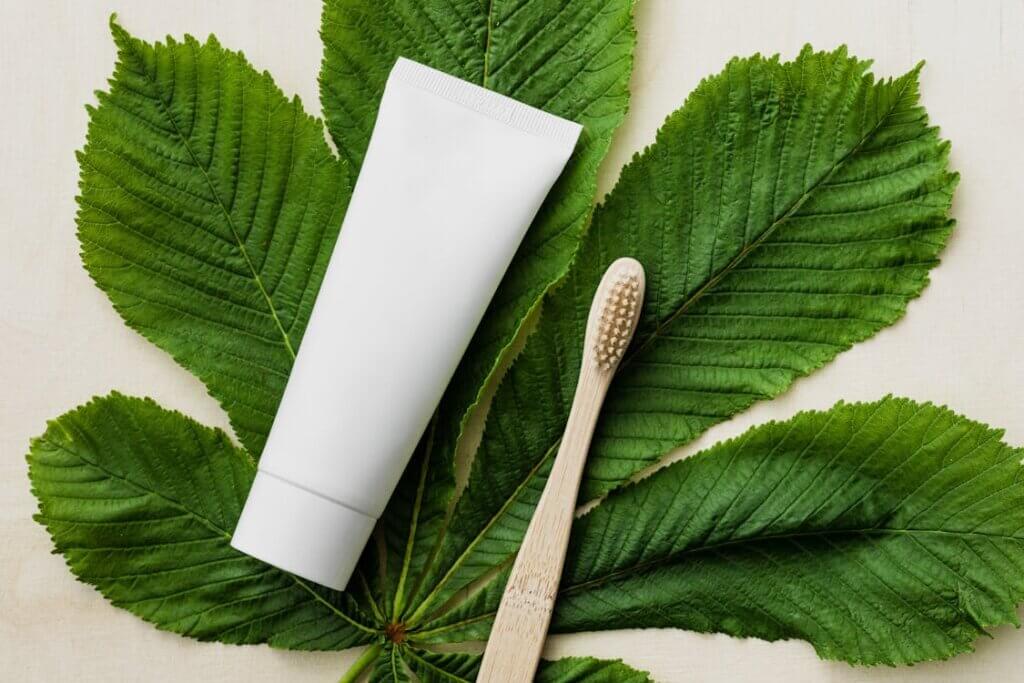Taking care of our teeth and gums is an important part of staying healthy, but many people don’t consider what’s actually in their toothpaste.
Conventional toothpastes may do a good job of cleaning, but they often contain chemicals that might have negative effects on our bodies. Switching to a natural toothpaste can offer a simpler and healthier approach, with ingredients that are gentle on both teeth and gums.
In this post, we’ll go over the main benefits of switching to natural toothpaste and break down how it can make a difference in your oral health and overall wellness.
Why switch to natural toothpaste?
1. Fewer synthetic ingredients and chemicals
One of the biggest reasons to switch to natural toothpaste is to reduce exposure to chemicals. Conventional toothpastes often contain artificial sweeteners, colors, and flavors. Here are a few common chemicals found in regular toothpaste and why they may not be the best for you:
- Sodium Lauryl Sulfate (SLS): This foaming agent helps toothpaste lather up, but it’s also a known irritant. SLS can cause mouth irritation, especially if you’re prone to canker sores, and some people find it aggravates sensitivity.
- Triclosan: Found in some antibacterial toothpastes, triclosan has been linked to potential hormone disruptions. Some studies suggest that triclosan may interfere with thyroid hormones and even contribute to antibiotic resistance.
- Artificial colors and flavors: Many toothpastes contain artificial dyes like FD&C Blue No. 1 or artificial flavorings to make them look and taste more appealing. While they’re generally considered safe, some people experience sensitivities, and certain food dyes have been flagged for potential health concerns over time.
Natural toothpastes, on the other hand, use simple, plant-based ingredients like baking soda, xylitol (a natural sweetener that fights bacteria), and essential oils. By avoiding artificial ingredients, you’re opting for a cleaner formula that can still be effective without the extra chemicals.
2. Lower chance of mouth sensitivity
If you’ve ever experienced a sore or sensitive mouth after brushing, certain ingredients in conventional toothpaste could be to blame. Chemicals like SLS or strong artificial flavors can sometimes cause irritation, especially if you have sensitive gums or teeth. People with conditions like canker sores or gum sensitivity might find these ingredients particularly harsh.
Natural toothpaste tends to leave out these strong chemicals and instead uses gentler alternatives, which can make them a better choice for people with sensitivities. For example, many natural formulas are free of SLS, which means they foam less but clean just as effectively without irritating sensitive tissue.
3. Gentle but effective cleaning
Natural toothpastes use mild abrasives, like calcium carbonate or silica, to clean and polish teeth without damaging enamel. Here’s how a couple of common natural ingredients work:
- Calcium carbonate: This is a naturally occurring mineral that provides a mild abrasive effect to help remove plaque and surface stains. It cleans teeth gently, making it a great choice for everyday use.
- Baking soda: Known for its whitening properties, baking soda also helps balance pH levels in the mouth, creating a less favorable environment for bacteria that cause cavities and bad breath. It’s gentle on enamel while effectively scrubbing away stains.
These ingredients make natural toothpastes just as effective at keeping your teeth clean, without the need for stronger chemicals that might be too harsh on delicate enamel.
4. Fresh breath without artificial flavors
Conventional toothpastes often rely on artificial flavors for that “fresh” taste, which can sometimes be overpowering. Natural toothpaste, however, is often flavored with essential oils like peppermint, spearmint, or clove, which are both flavorful and functional:
- Peppermint and spearmint essential oils: These natural oils not only provide a refreshing taste but also contain antimicrobial properties that help reduce the bacteria that cause bad breath.
- Clove oil: Known for its antibacterial and soothing properties, clove oil can be particularly beneficial for oral health, as it helps to combat bad breath and may have mild numbing effects that can soothe sore gums.
If you find conventional toothpastes too intense, natural options come in milder flavors that still leave your mouth feeling clean and fresh, without artificial ingredients.
5. Avoiding fluoride and its potential side effects
Fluoride is a controversial topic when it comes to oral care. The generally accepted claim is that fluoride can help prevent cavities by strengthening enamel—but it may have some drawbacks.
Excessive fluoride intake, particularly from multiple sources (like drinking water and toothpaste), can lead to a condition known as dental fluorosis—a discoloration of the teeth that occurs from overexposure. Additionally, some studies have raised concerns about fluoride’s potential impact on the thyroid and other aspects of health, though more research is needed in these areas.
Many natural toothpastes are fluoride-free, making them an appealing choice for those who prefer to avoid it due to these concerns. Instead of fluoride, some natural toothpastes use ingredients like xylitol to help prevent cavities by reducing harmful bacteria.
Key ingredients to look for in natural toothpaste
If you’re new to natural toothpaste, you might wonder which ingredients are doing the work to clean and protect your teeth. Here are a few common natural ingredients to keep an eye out for:
- Baking soda: A gentle whitener and neutralizer for acids in the mouth. It’s effective at removing surface stains without harsh abrasives.
- Xylitol: A natural sweetener derived from plants, xylitol helps reduce the bacteria that cause cavities, making it a popular fluoride alternative.
- Calcium carbonate: This mild abrasive helps remove plaque and polish teeth, and it’s a gentle way to keep your teeth looking bright.
- Essential oils (like peppermint, spearmint, and tea tree oil): These natural oils freshen breath and may have mild antibacterial properties, which can further support oral health.
- Aloe vera: Known for its soothing properties, aloe vera can help calm sensitive gums and reduce inflammation.
How to make the switch to natural toothpaste
Start by selecting a natural brand that fits your needs—whether it’s for sensitivity, whitening, or a gentle, mild option for everyday use. Keep in mind that natural toothpastes may not foam as much as regular ones due to the lack of SLS, but rest assured, they’re still effective at cleaning.
If you’re used to a strong minty flavor, it might take a little time to get used to the milder taste of natural toothpaste. Trying a few different brands can help you find one that works well for you.
Here’s to a healthier smile
Making the switch to natural toothpaste is a simple but meaningful choice for better oral health. Whether you’re looking for gentle cleaning, support for sensitive gums, or a cleaner approach to your daily routine, natural toothpaste offers an effective, healthier alternative.







